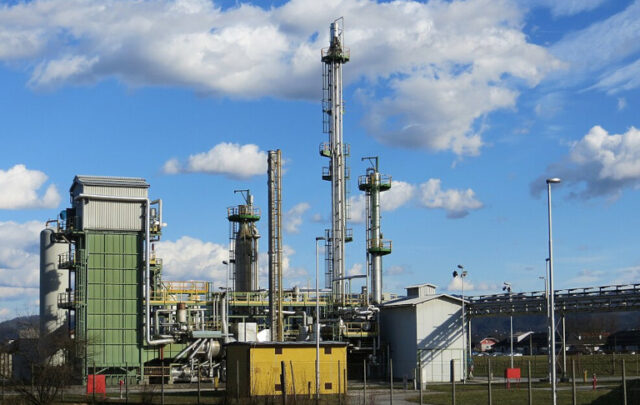In recent months, OPEC members had been producing nearly flat out to meet red-hot global oil demand, and officials have pledged to hike their output to keep the market supplied. The production hike has cut into OPEC’s unused capacity, and analysts have expressed concern that OPEC wouldn’t be able to fill any supply gap caused by a supply disruption in a major oil producer such as Iraq or Russia. Iraqi supplies remain a source of concern for traders.
Crude oil futures in New York rose Tuesday morning, resuming a rally that was punctuated by a price correction Monday.
“We’re still in a bull market,” said Peter Beutel, an analyst at trading advisory firm Cameron Hanover. “There are a lot of buyers who want to come into the market every time we move into negative territory.”
At the New York Mercantile Exchange, September crude futures rose 10 cents to $46.15 a barrel after falling as low as $45.63 a barrel earlier.
On London’s International Petroleum Exchange, September Brent futures slipped 21 cents to $42.48 a barrel.
Venezuelan Referendum
Monday’s decline in prices came a day after Hugo Chavez won a decisive mandate from Venezuelan voters to serve out the remainder of his term in office.
That eased worries that political unrest in Venezuela, the world’s fifth-largest exporter of oil, would disrupt the flow of oil from the country.
Now, traders are retraining their focus on tight global supplies and fear of a supply disruption in other major oil producing countries, analysts said.
OPEC production data released by tanker tracker Petrologistics lent some support to prices, said Tom Bentz, an analyst at BNP Paribas Futures in New York.
In its latest report, the Paris-based Petrologistics said OPEC’s output of crude oil in July averaged slightly below 29.5 million barrels a day, down slightly from June’s 29.6 million barrels a day, mainly because of a decline in output from Saudi Arabia.
Petrologistics had previously expected the OPEC to pump more than 30 million barrels a day in July.
Despite pledges to increase its output, Saudi Arabia, OPEC’s largest producer and exporter, produced about 9.13 million barrels a day of oil in July, down from 9.52 million barrels a day in June, according to Petrologistics.
Analysts Surprised
The figures came as a bit of a surprise to analysts. In recent months, OPEC members had been producing nearly flat out to meet red-hot global oil demand, and officials have pledged to hike their output to keep the market supplied.
The production hike has cut into OPEC’s unused capacity, and analysts have expressed concern that OPEC wouldn’t be able to fill any supply gap caused by a supply disruption in a major oil producer such as Iraq or Russia.
Iraqi supplies remain a source of concern for traders. Fighting has shut one of two export pipelines in the south of the country, cutting Iraqi exports by half.
The pipeline is expected to reopen within 48 hours, according to an Iraqi oil official. But the Iraqi oil industry remains vulnerable to attacks. Last week, supporters of radical Shiite cleric Muqtada al-Sadr threatened to blow up the pipelines in the south. And on Sunday, saboteurs torched an oil well in the region.
Also supporting prices was news that a Moscow court denied Russian oil producer OAO Yukos’ (YUKO.RS) petition to suspend the collection of a $3.4 billion tax bill, the Itar-Tass news agency reported.
Supply Concerns
Concern about the future of Yukos and OPEC’s inability to fill a supply gap should the company be forced to halt production has been behind the recent price surge.
“Underlying the bullishness in this market is the fear that there isn’t a single extra barrel that can be brought into the market at this market,” Beutel said.
The price rise came despite a bearish development overnight.
Iraq reportedly resumed pumping oil from its northern fields to the Turkish port of Ceyhan for the first time since saboteurs shut down the pipeline.
Analysts, however, played down the significance of the development, noting that most of Iraqi oil exports leave through its southern ports.





